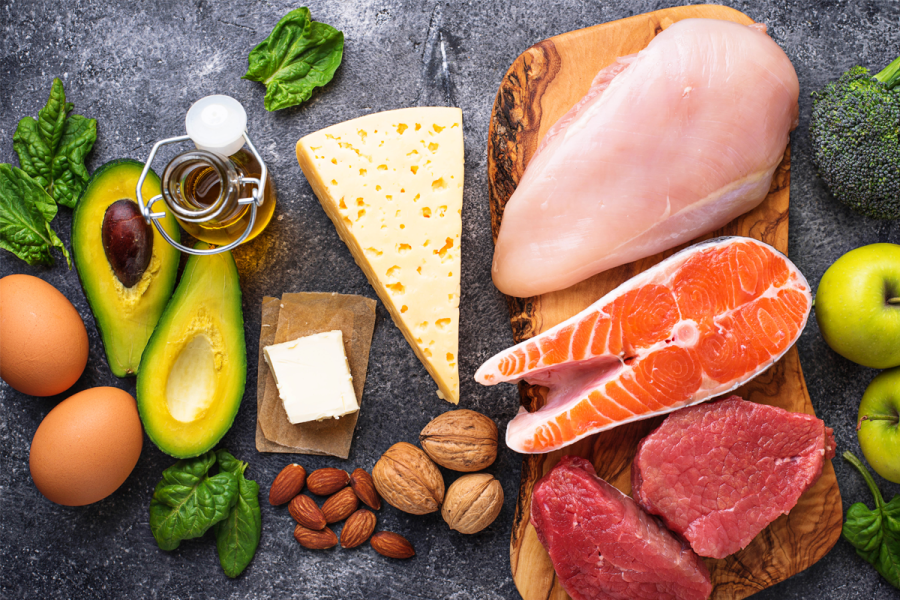Everything You Need to Know About the Keto Diet
Image courtesy of Food Business News
The keto eating plan is all about minimizing carbs to hopefully lower blood sugar, insulin levels, and result in weight loss.
April 19, 2022
The ketogenic diet focuses an individual on a low carb and high-fat diet. Rather than focus on proteins like many other fad diets, keto emphasizes fat, which supplies up to as much as 90% of calories consumed. In dramatically reducing one’s carbohydrate intake, the body is put into a metabolic state called ketosis. Instead of burning carbohydrates stored within the body, the body will burn the fat, helping to aid weight loss.
Foods high in carbs should be limited and possibly avoided. Some foods to watch out for include: soda, ice cream, pasta, all fruit (except small portions of berries), beans, potatoes, salad dressings, processed vegetable oils, alcohol, and even sugar-free diet foods.
Instead, your meals should be focused on meats, fatty fish, eggs, cheese, nuts, healthy oils (avocado oil), avocados, low carb veggies, and condiments like salt, pepper, herbs, and spices.
There are numerous benefits to the keto diet. It was first intended to help combat epileptic seizures in children. However, some of the other advantages include weight loss because the keto diet burns excess fat, which is closely linked to type 2 diabetes, prediabetes, and metabolic syndrome.
One study found that women with type 2 diabetes recognized following a ketogenic diet for 90 days lowered their levels of hemoglobin A1C, which overall helped their blood sugar management.
However, the diet should be undertaken with caution.
“While [the keto diet] has been tried for weight loss, only short-term results have been studied, and the results have been mixed. We don’t know if it works in the long [run], nor whether it’s safe,” says registered dietitian Kathy McManus, director of the Brigham and Women’s Hospital.
The keto diet can also mean substantial increases in the ingestion of saturated fat and cholesterol. Foods like some kinds of meat, cheese, and butter – keto staples- often contain these substances. Because of this, what one actually eats in keto could determine the success of the diet. For example, focusing on plant-based foods and lean meats while avoiding processed foods and carb substitutes could help mitigate some of the health risks with saturated fat and cholesterol.
Overall, the choice to try the ketogenic diet is a very individual decision, depending on the person’s goals, health, and other factors. It is recommended that any potential dieter discuss their plans with a healthcare professional.

